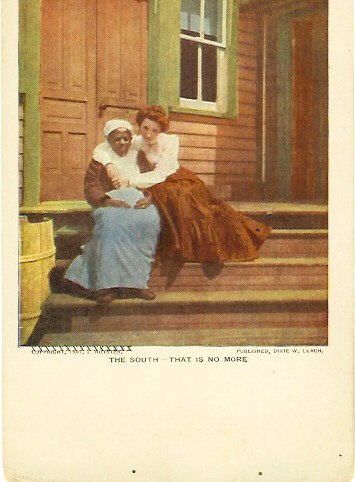
Beginning in the 1890s and stretching for many years into the 20th century, elderly blacks would appear in towns across the South, some of them ragged, some decently dressed. They were the ex-slaves, who had left after the Emancipation or the final defeat of the Southern cause, to make their own way through the world. But when their time came, they returned to spend their last few weeks and months amid the scenes of their childhoods. They went back to the places where they had been slaves. They went home.
If you can understand that, you will have understood a lot of the complexity that characterizes the human heart. And if you take next step and grasp that in many, perhaps most cases, they were welcomed back, welcomed back by their former masters, by the whites they had left years before, because they belonged, because they were family -- in way that would strike most of us as grotesque to the point of incomprehension, but family all the same -- well, if you understand that, then you have a grasp on something the world needs to know.
****************************************
If you believe press reports, Twelve Years a Slave
is undeniably one of the greatest -- perhaps the greatest -- film of
2013. Not due to any skill in filmmaking, which remains to be seen, or
audience response -- the film was only released last weekend. But solely
because Slave (directed by Steve McQueen, not the dead one
with the motorcycle, I'm pretty sure), is this year's PC film, one made
for the single purpose of preaching a very contemporary and meticulously
constructed racial message.
In this it joins a number of other recent pictures such as The Help and The Butler, and even, in a twisted way, Django. These films are all examples of a generally unrecognized subgenre of the propaganda film. They are racial films designed to raise an admonishing finger toward the white audience regarding its "legacy" as slaveholders while bolstering the blacks in their conviction of victimhood.
More @ American Thinker

No comments:
Post a Comment